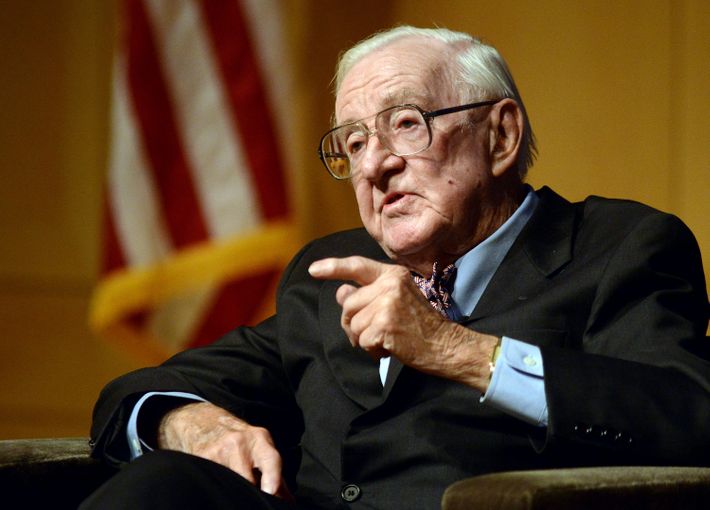Not So Long Ago, the Second Amendment Didn’t Guarantee the Right to Own a Gun

In
the minds of most gun enthusiasts, the idea that the Second Amendment
was consciously designed by the Founders as a bedrock right to horde
shooting irons, either for self-protection or to overthrow future
“tyrants,” is beyond question. But as retired Supreme Court justice John
Paul Stevens reminds us today, the personal right to bear arms as a premise of constitutional law is actually less than a decade old.
For over 200 years after the adoption of the Second Amendment, it was uniformly understood as not placing any limit on either federal or state authority to enact gun control legislation. In 1939 the Supreme Court unanimously held that Congress could prohibit the possession of a sawed-off shotgun because that weapon had no reasonable relation to the preservation or efficiency of a “well regulated militia.”
That precedent held until June of 2008, when by a 5–4 margin in the case of District of Columbia v. Heller the court finally recognized a right to civilian firearm ownership for self-protection.
Stevens wrote the main dissenting opinion in that case, which featured this argument:
Neither the text of the Amendment nor the arguments advanced by its proponents evidenced the slightest interest in limiting any legislature’s authority to regulate private civilian uses of firearms. Specifically, there is no indication that the Framers of the Amendment intended to enshrine the common-law right of self-defense in the Constitution.
It wasn’t until 2010, in the case of McDonald v. Chicago
that another 5–4 Supreme Court majority determined that its novel
interpretation of personal, civilian gun rights would be binding on the
states via the 14th Amendment. Again Stevens wrote the principal
dissent, arguing that even if there’s some personal right to bear arms
outside the militia context, it’s hardly the sort of “liberty interest”
that requires its imposition on the states.
This
treatment of the subject is far, far away from the standard
conservative treatment of the Second Amendment as the most fundamental
right of them all, extending not just to the sawed-off shotguns Congress
was regulating in 1939 to all sorts of military and quasi-military
weapons.
Yes,
Stevens was in the minority in those two landmark cases, but the point
to keep in mind is that the arguments about the Second Amendment assumed
as being self-evidently true by gun rights advocates these days are,
from the point of view of constitutional law, fragile and recent. And
even conservative jurists were dismayed by the gun lobby’s efforts to
change constitutional law on this subject, as Stevens points out:
During the years when Warren Burger was our chief justice, from 1969 to 1986, no judge, federal or state, as far as I am aware, expressed any doubt as to the limited coverage of that [Second] amendment. When organizations like the National Rifle Association disagreed with that position and began their campaign claiming that federal regulation of firearms curtailed Second Amendment rights, Chief Justice Burger publicly characterized the N.R.A. as perpetrating “one of the greatest pieces of fraud, I repeat the word fraud, on the American public by special interest groups that I have ever seen in my lifetime.”
Stevens understands how much water has gone over that particular dam in the years since the Heller decision. And
so he is now advocating a constitutional amendment to remove the Second
Amendment altogether, as “a relic of the 18th century” that is enabling
gun violence.
Four Best Friends From Parkland Explain Why March for Our Lives Matters
Constitutional
amendments, of course, are all but impossible to enact these days, and
the zeal, paranoia, and vast resources the gun lobby would bring to bear
in opposition to any effort to remove the Second Amendment make that
idea a total nonstarter. What’s less fanciful is the possibility that a
Democratic president or two could make Supreme Court appointments
leading to a partial or even total reversal of the
not-so-well-established precedent of Heller. And at the very
least, a different Court could head off some expansion of Second
Amendment rights to make it an absolute ban on gun regulations, or worse
yet, a warrant for extremists to prepare for armed insurrection against a “tyrannical” liberal government.

No comments:
Post a Comment